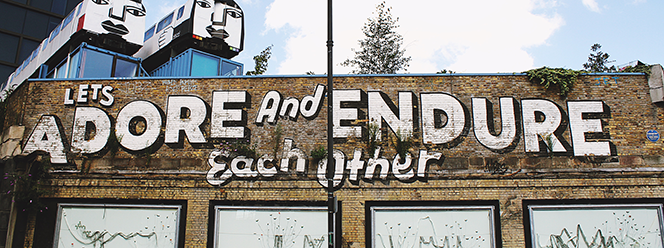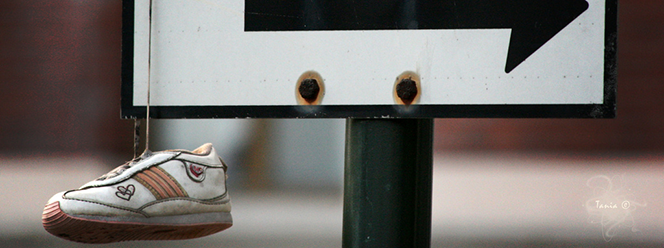
by Tara Joyce | May 4, 2017 | Cultural Creativity, Featured, Self/Business Growth
Every relationship you develop, from the most casual to the most intimate, serves to help you become more conscious.
We are taught to honour others, yet often this is one of the most difficult acts we can perform. For not only does it require us, first and foremost, to honour ourselves, it also requires us to come to know our Self. In a larger sense, your relationships are spiritual messengers, they bring into your life revelations about your own strengths and weaknesses.
Some of your relationships may be particularly painful (and necessarily so) as they’re here to help you to learn about yourself and your limitations. You may not be so enthusiastic to explore these “less attractive” aspects of self, yet recognizing your power to make choices and how they affect your world is the power of relationships. Your painful relationships help you to understand that every choice you make contributes to what you create. Choice is the process of creation itself.
Every choice you make is a creative act of spiritual power for which you are held responsible. Managing this power of choice, with all its spiritual and creative implications, is the essence of human experience. Yet you can’t know the full outcome of any choice you make, and so you may find yourself trying to control your life, and the life of others. Disappointment inevitably ensues since, try as you might, the physical world (and the people you are in relationship with) cannot be controlled. Your desires and whims are not for life to serve you on a silver platter.
Which returns you to the place where the greatest power you have is how you choose to behave in your relationships. Your relationships (especially the painful ones) help you to master your inner responses to the external world. They teach that you get to choose your thoughts and emotions.
The power and challenge of your relationships is to learn what motivates you to make the choices you do. In learning about what motivates you, you learn about the essence of your Self. Sex, power, and money are the currencies of relationships and your fear and/or faith is the energy you put behind this currency. This dynamic of choice, of fear and faith, guarantees you cannot run away from yourself or your decisions. For every outcome in some extent reflects this faith and/or fear.
To discover your personal motivations and your “false gods,” how you use and misuse the currencies of the physical world, you need relationships. So much of the way you respond to external challenges is how you respond to yourself. To guide you in developing a healthy and loving relationship with yourself, you have your relationships as a mirror. They are awakening you to your true personal power.
photo credit: Toa Heftiba

by Tara Joyce | May 19, 2016 | Self/Business Growth

Emotional littering is when I attempt to alleviate my own overwhelming emotions by disposing of them elsewhere, when I inherently know they’re mine to be responsible to.
In those moments, I don’t want to own what I’m feeling and how I’m reacting to it. Instead, I’m trying to drop my responsibility into another’s backyard. To put it on them.
I’m not making space for my stuff, and I’m attempting to alleviate this by leaving it for someone else to take care of. I’m pretending to not be attached to what I’m feeling.
I am emotionally littering. And in doing so—in not being responsible to how I feel—I’m giving away my power to feel differently. What a waste.
photo credit: Steven Pisano

by Tara Joyce | May 13, 2016 | Innerpreneurship, Self/Business Growth

A plant needs space, and a seed, as its container to grow. The seed is a boundary from which the plant grows, as is the space that it takes root and grows in.
To ensure our plants—the ones we choose to nurture and grow—have the space they need to grow free from invasive intruders, we weed our landscape.
Our relationships are no different. They are a landscape that needs our attention.
Weeding is necessary, as is protecting our space from the things we do not need, nor want, within it.
Defining our boundaries in this way is not as a fear-based act of protection, but rather a necessary and abundance-ensuring act that supports the growth of what we care about nurturing.
Everything living needs boundaries to build strong foundations from. What grows from us is no different.
Our boundaries nurture what we care to come to fruition.
photo credit: Enid Martindale

by Tara Joyce | Mar 31, 2016 | Self/Business Growth

I need to talk more about all the people I’ve left behind. We need to talk about them more.
We talk of the relationships we have, and the ones we desire—but we don’t talk often enough about the many more people we’ve met and have not moved forward with. We don’t talk enough about all the people we leave behind.
I want us to talk about them more. I want us to talk about what we leave in the past, and how it changes over time. I want us to talk about what remains for us. And what (and who) does not. I want us to understand the relics of our past, and their value to us today.
I believe there is much to learn from the people I have not taken with me, the relationships I have not sustained. Whatever happened between us, I understand to move forward fully, making space for my future and the relationships it holds, it is necessary to more fully honour you—and all whom I’ve left behind.
photo credit: Spiderdama
P.S., I love this recent interview I did with The Entrepreneur’s Radio Show, about how we can best serve each others unique challenges (and more). You can listen here. Enjoy!

by Tara Joyce | May 7, 2014 | My Journey | What's On My Mind, Pay What It's Worth Pricing

I was all set to release my first book on Pay What It’s Worth pricing last week, a book I’ve been writing in one form or another for, I don’t know… six years or so, but life got in the way, as it does.
Life, it seems, had a bunch to teach me, and specifically about PWIW.
Life had me thinking my book was a terrible lie. And then it had me thinking that there was so much missing from it.
See, that’s my problem with Pay What It’s Worth… always has been. There’s just too much to say. And it keeps growing. And I can’t get it down fast enough before it teaches me something new.
A New Truth
I’ve always felt very strongly about the communication around Pay What It’s Worth, in that I feel strongly about the importance of how I communicate what I am asking my customers to do when I allow them to set the price they pay.
It is my feeling that to be happy in the exchange both participants need to feel empowered, and that means holding both buyer and seller responsible for their contributions to the exchange.
Last week, as a seller, it became very clear that the biggest part of my job (beyond creating value) is to guide my customers towards a fair exchange with me — to support them in being responsible with their giving and in their relationship with me.
We all have our money stuff, and in choosing a system where I allow my customers to determine my value, I am entering into a relationship with their money stuff too.
A New Block to Build From
In asking my customers to pay what it’s worth, I’m asking them to experience the value they are receiving and to give fair monetary value in return for it.
And while that sounds simple in words, it’s terribly difficult in practice. And what I haven’t been totally responsible for, I can see now as a seller (and as a writer on the topic), is the truth of this.
It’s fucking hard to stay balanced and in integrity with money. It’s fucking hard to pay what it’s worth.
The truth is, if I’m asking people and all their money stuff to value me fairly, I had better provide ample support and understanding. Because what I am really asking is for them to be in a balanced relationship with me.
Is it fair of me to expect that they know what this looks or feels like? Especially in a “business” relationship?
Support for Giving Freely
Our relationship is not one where the customer gets to pay what they want. In offering that, I’d be creating a relationship where they’re free to put their money stuff on me, and I’m free to put my money stuff on them.
The intention for our exchange is empowerment and wealth creation. It’s not about want, it’s about meeting needs and exchanging fair value.
If I want this intention of need and fair value to stay true throughout my exchanges, I need to ensure all my guideposts indicate this. In my offering of paying what it’s worth, I need to ensure that I’m not creating space for my customers to default to paying what they want.
It’s important I protect myself from how easy it is, when our money stuff arrives, to make it about want.
As a seller it’s imperative I continue to do what I can to guide my customers towards being responsible in how they value me. This, it seems, is my biggest responsibility in our exchange outside of providing great value.
If I sincerely want our exchange to be about what we both can give, I need to acknowledge how hard that can be to act on. Only in my acceptance of this can I help my customers to be responsible to it.
photo credit: Kaytee Riek









